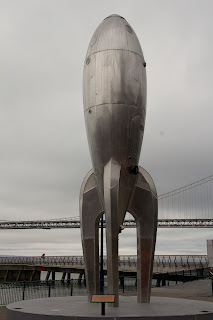 |
| Irish castle; Mexican paint job |
Yesterday I finished a very fun, modern retelling of Emma by one of my favorite authors, Scottish Alexander
McCall Smith. I just sat in a recliner all afternoon with a fuzzy blanket over my feet and my left
hand stuck up in the air and immersed myself in Jane Austen. Sigh.
The reason I stayed in the recliner all afternoon with my hand
up in the air is because in the morning I had gone in for my next hand surgery.
I have figured out what the needles feel like. In Texas a few summers ago, I
was stung by a scorpion hiding in a shirt I was picking up off the floor. We
saw over a dozen scorpions in that house. They were everywhere. And that’s what the needles feel like. There
were three of them. Stab. Stab. Stab. The surgeon kindly asked me if I was
alright. What was I going to say? Yes. It’s absolutely no big deal to get stung
by scorpions. Three times in a row. When you know it’s coming, and you have to hold
out your hand.
So I was taking the afternoon off and immersing myself in
Austen’s world, where Miss Taylor takes courses on Open University, and Harriet
texts Martin to cancel their date. Mr. Knightly is still Mr. Knightly. The
author mentions how people want to claim they are from Chipping Norton rather
than plain old London. And I was just in Chipping Norton a few days ago, so I
know exactly what he means. Chipping Norton is this quaint (and as my map
labeled it, “historic and picturesque) town where post-modern people live
inside pre-modern houses. My friend Alyson’s daughter goes to high school there
and studies things like Philosophy, Ethics, and Religion. We had the coolest
discussions around the dinner table about the probability of miracles and the relevance
of Hegel. How many of your friends’ kids are willing to sit around and discuss philosophy
and watch “Everything is Spiritual” with you when you come for a visit?
Which brings me to “So how was your get-away” in Ireland and
England? Marianne asked me if it was everything I’d dreamed of, and Diana asked
me if I really did sit around and read books there. Answer to both questions: a
resounding yes. Vacations truly reflect your culture as a couple, and this
get-away reflected ours.
We weren’t interested in packing in the sites and
attractions, following hundreds of tourists from spot to spot. We were more
interested in being in beautiful places, exploring the unknown, finding the
unexpected, and getting the feel of the place, soaking it in. We started from an AirBnB spot in Temple Bar, downtown
Dublin, across the street from Dublin Castle. When we walked out our little
alleyway, there it was. We ate lamb at carveries, where they piled on enough
food for four meals, and at night we went to pubs to listen to live trad
(traditional music). One night there were Irish dancers.
Our host took time as soon as we got in the door to explain
some Irish history (this is the hundred year anniversary of the 1916 Easter uprising,
which we saw re-enacted on St. Stephens Green). There are reminders of the
uprising everywhere. One building overlooking the River Liffy has the Proclamation
of the Republic written in large on the wall for everyone to see and remember. Our
host mused that the lost county (Northern Ireland) might return to the Republic
if Brexit forced borders between the two countries. Our host at the northern
tip of Ireland, who worked in Northern
Ireland, said that would never happen. That was our lesson in Irish Politics. The
Irish reminded me of the Mixtecs because both cultures have been overshadowed
by more powerful, more dominant neighbors. Both are forging new identities that
meld their own traditions with the influence of their former conquerors, but
the conquerors don’t much notice.
There’s more to tell, of course. The challenge is to weave
the telling into what is happening now, a collage of times and cultures: a “getting-away”
couple, who connects everything to Mixtecs, and tours Ireland, and returns to
Canada, to Jane Austen and scorpion stings.






